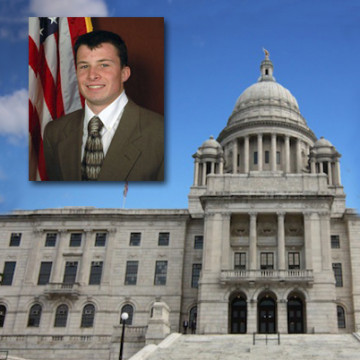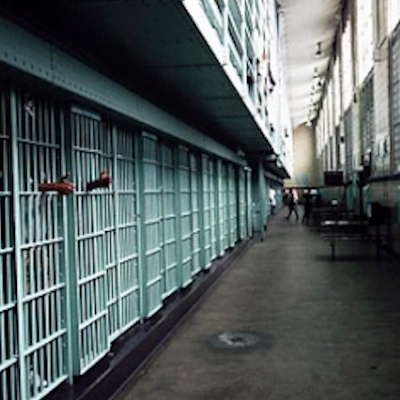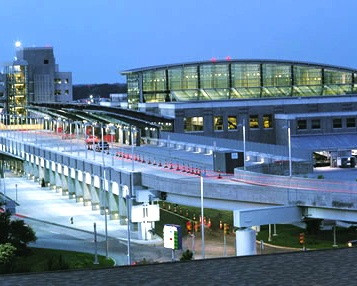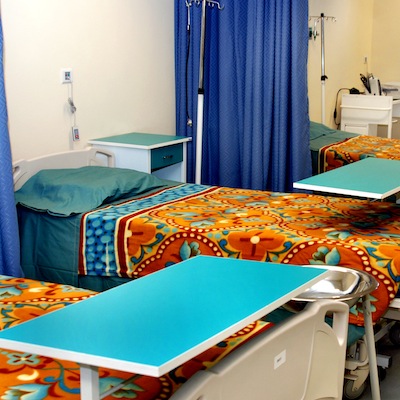Senator Kettle Introduces Bill to Reduce Business Regulations
Friday, March 17, 2017
GoLocalProv Business Team
 View Larger +
View Larger +
Senator Nicholas Kettle
Senator Nicholas Kettle has introduced a bill that would reduce the regulations on Rhode Island businesses.
Kettle’s new bill would require state agencies that propose new rules or regulation to identify at least one existing rule or regulation to be repealed.
“The goal is to get regulators to be deliberate in what they require of businesses and individuals. This is also an effort to eliminate unnecessary regulations. Over-regulation is one of the biggest complaints I get from small businesses in our state – and our state is ranked very low for business friendliness,” said Senator Kettle.
GET THE LATEST BREAKING NEWS HERE -- SIGN UP FOR GOLOCAL FREE DAILY EBLAST
The bill amends the state’s Administrative Procedures Act to require that any time an agency publicly proposes for notice or comment, or otherwise creates a new regulation, he agency would need to identify one existing regulation to be repealed.
“I am constantly striving to find ways to make it easier to open and run a business in Rhode Island. I think reducing the regulatory burden is an important effort to reach that goal,” said Kettle.
The legislation now goes before the Senate Committee on Judiciary for consideration.
Related Slideshow: Winners and Losers in Raimondo’s FY18 Budget Proposal
 View Larger +
View Larger +
Prev
Next
Winner
Criminal Justice Reform
Per recommendations from the Justice Reinvestment Working Group, the Governor is proposing nearly $1 million in investments such as the public defender mental health program ($185,000), improved mental health services at the ACI ($410,000), recovery housing ($200,000) and domestic violence intervention, in her FY18 budget.
 View Larger +
View Larger +
Prev
Next
Winner
English Language Learners
Under the heading of “promoting 3rd grade reading,” Raimondo proposed adding $2.5 million to make English Language Learning (ELL) K-12 funding permanent. The Governor’s office points out that RI is one of four states that doesn’t have permanent funding.
The suggestion was one made by the Funding Formula Working Group in January 2016, who said that “in the event that Rhode Island chooses to make an additional investment in ELLs, the funding should be calculated to be responsive to the number of ELLs in the system and based on reliable data, and include reasonable restrictions to ensure that the money is used to benefit ELLs — and promote the appropriate exiting of ELL students from services.”
 View Larger +
View Larger +
Prev
Next
Winner
Car Owners - and Drivers
Governor Raimondo wants to reduce assessed motor vehicle values by 30% - a change that would reduce total car tax bills by about $58 million in calendar year 2018. Speaker of the House Nicholas Mattiello, however, has indicated that he might want to go further in its repeal.
In her budget proposal, Raimondo also put forth adding 8 staffers to the the Department of Motor Vehicles to "address wait times."
 View Larger +
View Larger +
Prev
Next
Winner
T.F. Green
The “Air Services Development Fund” would get an influx of $500,000 to “provide incentives to airlines interested in launching new routes or increasing service to T.F. Green Airport.” The Commerce Corporation set the criteria at the end of 2016 for how to grant money through the new (at the time $1.5 million fund).
Also getting a shot in the arm is the I-195 development fund, which would receive $10.1 million from debt-service savings to “resupply” the Fund to “catalyze development & attract anchor employers.”
 View Larger +
View Larger +
Prev
Next
Tie
Minimum Wage Increase
An increase in the state minimum wage is part of Raimondo’s proposal, which would see it go from $9.60 an hour to $10.50 an hour. Raimondo was unsuccessful in her effort in 2016 to bring it up to $10.10 — it was June 2015 that she signed legislation into law that last raised Rhode Island’s minimum wage, from $9 to 9.60.
The state's minimum hourly wage has gone up from $6.75 in January 2004 to $7.75 in 2013, $8 in 2014, and $9 on Jan. 1, 2015. Business groups such as the National Federation of Independent Business however have historically been against such measures, citing a hamper on job creation.
 View Larger +
View Larger +
Prev
Next
Tie
Cigarette Tax
Like the minimum wage, Raimondo is looking for an increase - in this instance, the cigarette tax, and revenue to state coffers. Raimondo was unsuccessful in her effort to go from a tax of $3.75 to $4 last year. Now she is looking for an increase to $4.25 per pack, which the administration says would equate to $8.7 million in general revenue — and go in part towards outdoor recreation and smoking cessation programs.
The National Federation of Independent Business and other trade groups have historically been against such an increase, saying it will hurt small businesses - i.e. convenience stores. And clearly, if you’re a smoker, you’re likely to place this squarely in the loser category instead.
 View Larger +
View Larger +
Prev
Next
Loser
Hospitals
As often happens in the state budget, winner one year, loser the next. As GoLocal reported in 2016, “the Rhode Island Hospital Association immediately lauded the budget following its introduction, and addressed that while it is facing some reductions, that it "applauds" this years budget after landing on the "loser" list last year.”
This year, it falls back on the loser list, with a Medicaid rate freeze to hospitals, nursing homes, providers, and payers — at FY 2017 levels, with a 1% rate cut come January 1, 2018.
 View Larger +
View Larger +
Prev
Next
Loser
Online Shoppers
The taxman cometh — maybe. Raimondo proposed an “Internet Sales Tax Initiative” — which would purportedly equate to $34.7 million in revenues.
"Online sales and the fact that online sellers do not collect sales tax has created a structural problem for Rhode Island's budget — our sales taxes have been flat," said Director of Administration Michael DiBiase, of the tax that Amazon collects in 33 states, but not Rhode Island. "We think mostly due to online sales, we’re able to capture the growth. The revenue number is $35 million dollars — it improves our structural deficit problem. It’s an important fiscal development."
 View Larger +
View Larger +
Prev
Next
Loser
Long Term Care Funding
The Governor’s proposal recommends “redesigning the nature” of the State’s Integrated Care Initiative, by transferring long-term stay nursing home members from Neighborhood Health to Medicaid Fee-for-Service and repurposing a portion of the anticipated savings (from reduced administrative payments to Neighborhood Health) for “enhanced services in the community.” “The investments in home- and community-based care will help achieve the goal of rebalancing the long-term care system," states the Administration.
Cutting that program is tagged at saving $12.2 million; cuts and “restructuring” at Health and Human Services is slated to save $46.3 million.
Related Articles
Enjoy this post? Share it with others.





















